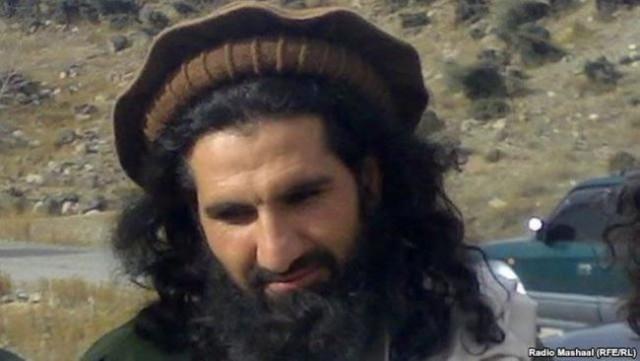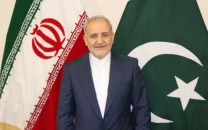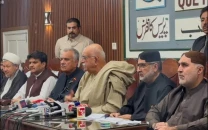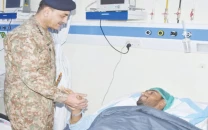Situationer: Sajna’s departure likely to exacerbate divisions within TTP
The Haqqani network and al Qaeda may intervene and initiate a rapprochement process between Sajna and the TTP.

“Sajna being a son of the soil is not willing to accept a Swati TTP chief [Fazalullah], who is also far away from the main battlefield in North Waziristan,” said an observer. PHOTO: PHOTO: RADIO MASHAAL
The departure of the Mehsuds, the tribe from which the Tehreek-e-Taliban Pakistan draws most of its foot-soldiers, has thrown the TTP leadership into disarray, according to analysts.
The Waliur Rehman Group of Khan Said, alias Sajna, who belongs to the Mehsud tribe, has been embroiled in bloody clashes with the Sheharyar Mehsud-led Hakimullah Group since April this year. Dozens of fighters from both sides have been killed in fighting ever since.
“The TTP is likely to lose its prominence due to the separation of Mehsud fighters from the main group,” Rustam Shah Mohmand, a tribal affairs expert, told The Express Tribune. He was referring to the pullout of the Sajna faction from the TTP.
Mohmand and other analysts foresee more affiliated groups defecting from the organisation including the Punjabi Taliban, headed by Commander Asmatullah Mauavia, who is likely to join Sajna’s group as he also favours a negotiated settlement with the government.
Hafiz Gul Bahadur, a key figure of the Pakistani Taliban has already distanced himself from the TTP leadership mainly because he has a peace agreement with the government. For this reason, analysts say, Bahadur is also likely to throw his weight behind the Mehsuds.
“Bahadur is likely to play mediator between Sajna and the government for a permanent peace accord,” Mohmand said, adding that TTP chief Mullah Fazalullah is unlikely to find any meaningful support after the breakaway of the Mehsud tribe.
Sajna was a contender for the TTP’s leadership after its former chief Hakimullah Mehsud was killed in a US drone strike last November. He is seen as formidable rival of Fazalullah, who he has defied on numerous occasions. “Sajna flatly refused to abide by the decisions recently taken by Fazalullah,” said Mohmand.
“Divisions in the TTP have provided a great opportunity to the government and military to set the tone for peace talks,” said Mohmand. However, he added, it could be an equally dangerous situation due to the volatility of the group at present.
The Haqqani network and al Qaeda may intervene and initiate a rapprochement process between Sajna and the TTP. However, experts believe there are bleak chances of reconciliation.
“Sajna being a son of the soil is not willing to accept a Swati TTP chief [Fazalullah], who is also far away from the main battlefield in North Waziristan,” said an observer, adding that the Haqqani network may also side with the Mehsuds in case Sajna refuses to make peace with Fazalullah.
A spokesman for Jamiat Ulema-e-Islam-Fazl (JUI-F) Jan Achakzai believes the old leadership of TTP would not be able to survive this blow since over 75% of TTP fighters belong to the Mehsud tribe.
He urged the government to engage the TTP factions in other parts of Fata as many of them favour a negotiated settlement. “Peace negotiations should also be initiated with the TTP commanders in the tribal agencies of Bajaur, Mohmand and Orakzai.”
Rustam Shah Mohmand believes the split between pro- and anti-dialogue camps would push TTP commanders in Mohmand, Orzakzai and Bajaur in favour of peace negotiations with the government.
Further, analysts fear, large-scale bloodshed among militants is also a possibility if Sajna’s group asks his rivals to leave North Waziristan. “However, all small groups of TTP-affiliated militants will prefer to either leave North Waziristan on their own or part ways with the TTP before they are ordered to vacate the main tribal hub of militancy,” Mohmand added.
Published in The Express Tribune, May 29th, 2014.



















COMMENTS
Comments are moderated and generally will be posted if they are on-topic and not abusive.
For more information, please see our Comments FAQ